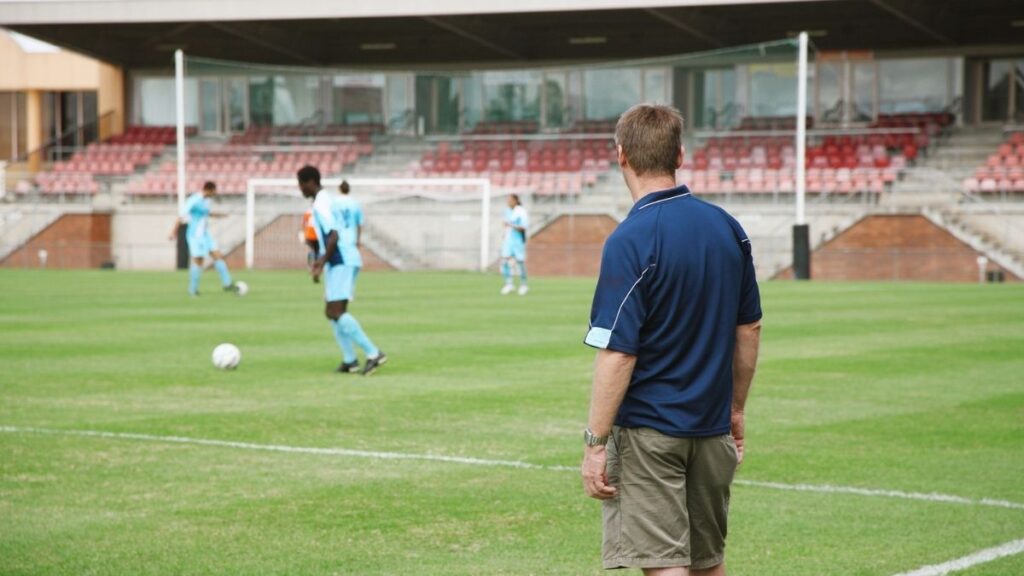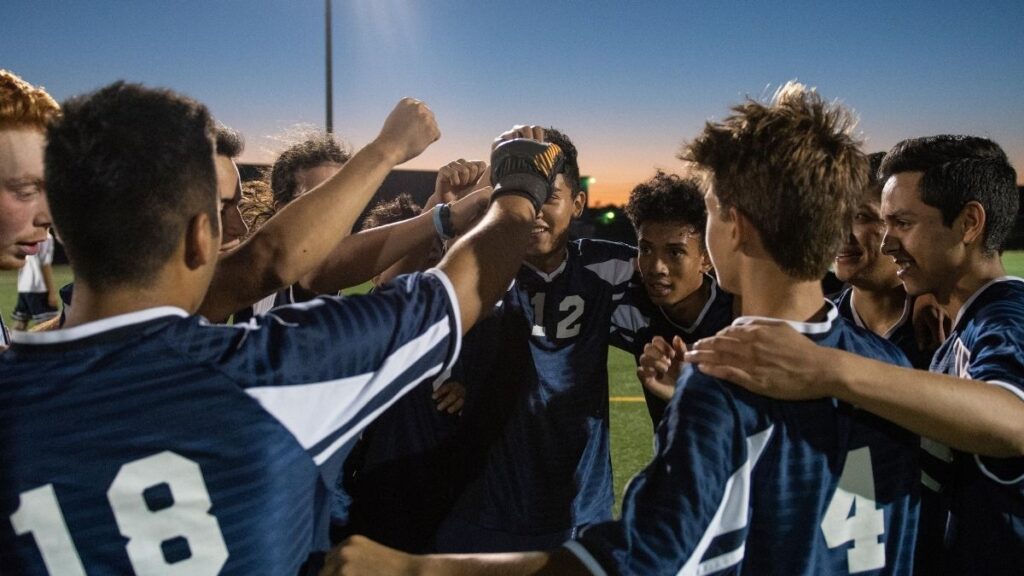Boost your betting experience and get up to $200 bonus right now!
Shakhtar Donetsk is not just a football club; it’s a narrative of courage, adaptability, and unyielding spirit against a backdrop of conflict that few sports entities have faced. Since being uprooted from their home city due to political turmoil and warfare, the club has transformed challenges into symbols of hope and defiance. From navigating missile strikes interrupting their matches to competing in foreign stadiums far from their fervent fans, Shakhtar persists. Their journey intertwines the worlds of sports and survival, where every victory on the pitch echoes a larger battle off it. Despite the dangers and disruptions, they continue to attract and develop talent, foster community resilience, and maintain their standing in elite European competitions. Their story goes beyond football; it’s about a community’s determination to hold onto identity and dignity amidst chaos.

Sommaire
ToggleShakhtar Donetsk’s Journey Through Displacement and War-Torn Realities
The saga of Shakhtar Donetsk begins long before the current war enveloped Ukraine in turmoil. Founded in 1936, the club enjoyed decades of domestic and European success, including 15 Ukrainian Premier League titles and the coveted UEFA Cup victory in 2009. However, their trajectory shifted dramatically after 2014, when the escalation in the Donbas region forced the club to leave their iconic Donbas Arena—once a fortress resounding with the Shakhtar faithful.
Forced into exile, the club’s nomadic existence soon became a test of resilience. Home games moved between multiple cities such as Lviv, Kharkiv, and finally Kyiv in 2020, along with matches hosted beyond Ukraine’s borders in Poland and Germany. This logistical nightmare strained not only the team’s preparation but also its emotional connection with supporters. Relocation did not mean surrender; rather, it galvanized the squad.
Understanding the toll displacement has taken requires seeing the human stories intertwined. The players and staff often grapple with the psychological burden of disrupted routines, uncertainty, and the safety concerns for their families. Sergei Palkin, Shakhtar’s chief executive, captured this poignantly, revealing how difficult it is to motivate players when the threat of missile strikes hovers near their venues. Just days before a league match at Kryvbas, an airstrike hit the hotel where the visiting team lodged, resulting in tragic casualties. The decision to continue the match amid these dangers was emblematic of a spirit refusing to break.
Matches interrupted by air raid sirens have become a reality of Ukrainian football, forcing players into an uneasy state of readiness, always fighting not just for goals, but for survival in every sense. Team captain Taras Stepanenko has spoken about the anxiety permeating the squad and the pressing need for enhanced security protocols. The club’s operations mirror Ukraine’s broader story — navigating a torrent of instability with stiff resolve.
- Move from Donbas Arena due to war in 2014
- Use of multiple stadiums: Lviv, Kharkiv, Kyiv, Poland, Germany
- Psychological toll on players linked to safety concerns
- Ongoing disruption from air raid sirens affecting gameplay
- Leadership emphasizing player family safety and emotional wellbeing
| Year | Stadium Used | Significance |
|---|---|---|
| Pre-2014 | Donbas Arena, Donetsk | Club’s iconic home and fortress |
| 2014-2019 | Lviv & Kharkiv | Temporary bases amid regional instability |
| 2020-Present | Olimpiyskiy National Sports Complex, Kyiv | Established domestic base amid war |
| 2020-Present | Various venues in Poland & Germany | Hosting UEFA matches for safety and logistics |

How Adversity Forged a Unique Club Identity
Sergei Palkin underscores the historical uniqueness of Shakhtar’s journey, highlighting that European football has rarely seen a club so tested by external forces—but still competitive at the highest level. The club’s resilience is etched into its DNA, becoming an emblem of national pride and collective endurance that transcends sport. Their story often parallels narratives of other displaced clubs — but few can match the sheer scope of Shakhtar’s trials and accomplishments.
In addition to logistical challenges, the club’s ability to nurture talent through their renowned academy and strategic scouting, especially in Brazil, remains a cornerstone of their sustained competitiveness in both domestic and UEFA competitions. Their approach to recruitment, at a time when many clubs hesitate to enter the Ukrainian market due to security concerns, demonstrates Shakhtar’s unwavering commitment to football excellence.
- Fifteen-time Ukrainian Premier League champions
- 2009 UEFA Cup winners
- Strong scouting network focused on Brazilian talent
- Continued domestic and international competition
- Balancing player development with safety concerns amid war
On-Field Triumphs: Shakhtar’s Competitive Spirit Refusing to Yield
Despite the turbulence off the pitch, Shakhtar Donetsk has maintained a level of football that commands respect in both Ukraine and Europe. Their 2023-2024 Ukrainian Premier League title is a testament to this extraordinary spirit. With 70 points gathered over 28 games, including 22 wins and only 2 losses, Shakhtar demonstrated an unmistakable hunger for success, epitomized in their narrow victory against their archrival Dynamo Kyiv.
This triumph showcases how the club channels adversity into motivation. Facing the backdrop of ongoing conflict, where home games often feel like battles beyond sport, players wear their hearts and country on their sleeves. Even the 1-0 win that clinched the title was marked by intense emotions, including a red card that symbolized the fierce fight on the pitch.
Following this domestic success, the team now prepares for the Ukraine Cup final against FC Vorskla Poltava, looking to extend their legacy. The weight of their victories resonates far beyond trophies; they serve as beacons of hope for a nation grappling with war. Shakhtar’s success provides fans and communities with moments of joy and pride amid difficult times.
- 2023-2024 Ukrainian Premier League champions with 70 points
- 22 wins, 4 draws, 2 losses in the season
- Notable victories against top domestic rivals
- Upcoming Ukraine Cup final participant
- Symbol of national pride during ongoing conflict
| Competition | Result | Key Matches |
|---|---|---|
| Ukrainian Premier League (2023-2024) | Champions | Win vs Dynamo Kyiv (1-0), dominant wins throughout season |
| UEFA Champions League 2023-2024 | Group stage exit | Notable 1-0 victory over FC Barcelona in Germany |
| Ukraine Cup 2024 | Finalist | Upcoming final vs FC Vorskla Poltava |
How Victories Symbolize Hope and Unity
Every game won by Shakhtar under these extraordinary circumstances is more than just a sporting result — it’s a message of defiance and hope. The club’s ability to integrate these wins into a broader social narrative is a crucial factor in sustaining morale not only for the team but also for supporters nationwide. Football becomes a temporary relief from the harsh realities outside the stadium walls and a reminder that life and community endure.
- Wins as symbolic resistance against adversity
- Boosting morale for fans and the wider community
- Creating moments of normality amid chaos
- Inspiration for other sports clubs coping with conflict
- Building unity through collective celebration
Challenges and Triumphs in Player Recruitment and Development
War and displacement inevitably reshape the football transfer market. Shakhtar’s approach reflects a delicate balance between nurturing homegrown talent and leveraging a renowned scouting network predominantly in Brazil. The club’s achievements in identifying and developing young stars have been pivotal to offsetting restrictions brought by geopolitical conflict.
Nevertheless, the ongoing war creates substantial barriers in attracting international players. Fear of instability, uncertainty around logistics, and concerns for personal safety make Shakhtar’s recruitment efforts particularly challenging. “When you have a war in your country, a full invasion, it is difficult to attract top talent because they are afraid,” admits Sergei Palkin. Yet, the club remains competitive in the transfer market by maximizing academy products and targeting players who see beyond the turmoil.
The club’s resilience in this realm is mirrored by its notable sales figures in recent years, transforming its academy graduates into lucrative assets. Shakhtar’s ability to navigate a shifting market, in tandem with competing giants outfitted by major brands such as Nike, Adidas, Puma, New Balance, and Under Armour on the global stage, elevates their status as a tactical and financial powerhouse among low-cost clubs thriving despite adversity.
- Heavy reliance on youth academy and Brazilian scouting network
- Difficulty attracting international players from Europe and beyond
- Successful player sales funding club sustainability
- Competition against clubs sponsored by global brands including Nike and Adidas
- Adaptation to shifting transfer market dynamics amid ongoing war
| Aspect | Effect of Conflict | Club’s Strategy |
|---|---|---|
| Recruitment | International players hesitant | Focus on academy and Brazil scouting |
| Player Sales | Market value affected but active | Profitable sales to sustain operations |
| Competitive Edge | Reduced direct appeal | Emphasizing resilience and adaptability |
| Brand Partnerships | Exposure limited by conflict | Maintaining relationships with Nike, Puma, Under Armour, and Umbro |
Development Amid Danger: Building Future Stars
The academy has become a beacon of stability for Shakhtar, focusing on producing technically gifted players ready to compete across Europe. Their long-term vision aligns with sustainable success and community rebuilding efforts. Recent analyses highlight how clubs like Atalanta or RB Leipzig, with focused youth development and tactical innovation, provide blueprints that Shakhtar can relate to as they plot their future. By investing in homegrown talent, they maintain hope for a football future unmarred by war.
- Emphasis on technical skill and tactical training
- Learning from European success models like Atalanta and RB Leipzig
- Aligning youth development with club’s strategic survival
- Community-focused growth inspiring local youth
- Balancing player welfare amid ongoing geopolitical risks
Shakhtar’s Role Beyond Football: Community Solidarity and Social Responsibility
In a conflict zone, football transcends sport to become a vital social pillar. Shakhtar Donetsk embraces this role wholeheartedly. Beyond fighting for trophies, the club is committed to supporting those affected by the war, including displaced families and injured civilians. Organizing charity matches, fundraising, and social initiatives helps bind the community and foster hope where despair might otherwise dominate.
A particularly inspiring initiative is the formation of Shakhtar Stalevi, the amateur amputee football team composed of individuals directly impacted by the conflict. This team not only provides therapeutic benefits but symbolically emphasizes resilience and the power of sport to heal. Their existence amplifies the club’s message that football can be a force for unity and recovery.
- Fundraising for displaced families and war-affected civilians
- Charity matches bringing awareness and solidarity
- Creation of amputee team Shakhtar Stalevi as an inclusive gesture
- Players and staff engaging in social responsibility campaigns
- Promotion of HeForShe initiatives and UEFA solidarity programs
Football as a Beacon of Hope Amidst Chaos
Shakhtar Donetsk’s consistent presence on Ukraine’s football landscape amid turmoil mirrors a broader global narrative where sport binds and uplifts communities. The club’s partnerships with global brands such as Pepsi and Gazprom underscore their international footprint, while socially responsible campaigns tie back to grassroots engagement. Their story encourages a new generation of fans and players to view football not just as a game, but a lifeline fostering peace, unity, and resilience in the face of adversity.
- International partnerships supporting club visibility
- Alignment with global social movements like HeForShe
- UEFA programs aiding clubs in conflict zones
- Instilling hope through inclusive community football projects
- Promoting peace and unity beyond sports boundaries
Join today and grab up to $200 bonus for your next bets!
Content assisted by AI. This article was created in whole or in part with the help of artificial intelligence.


